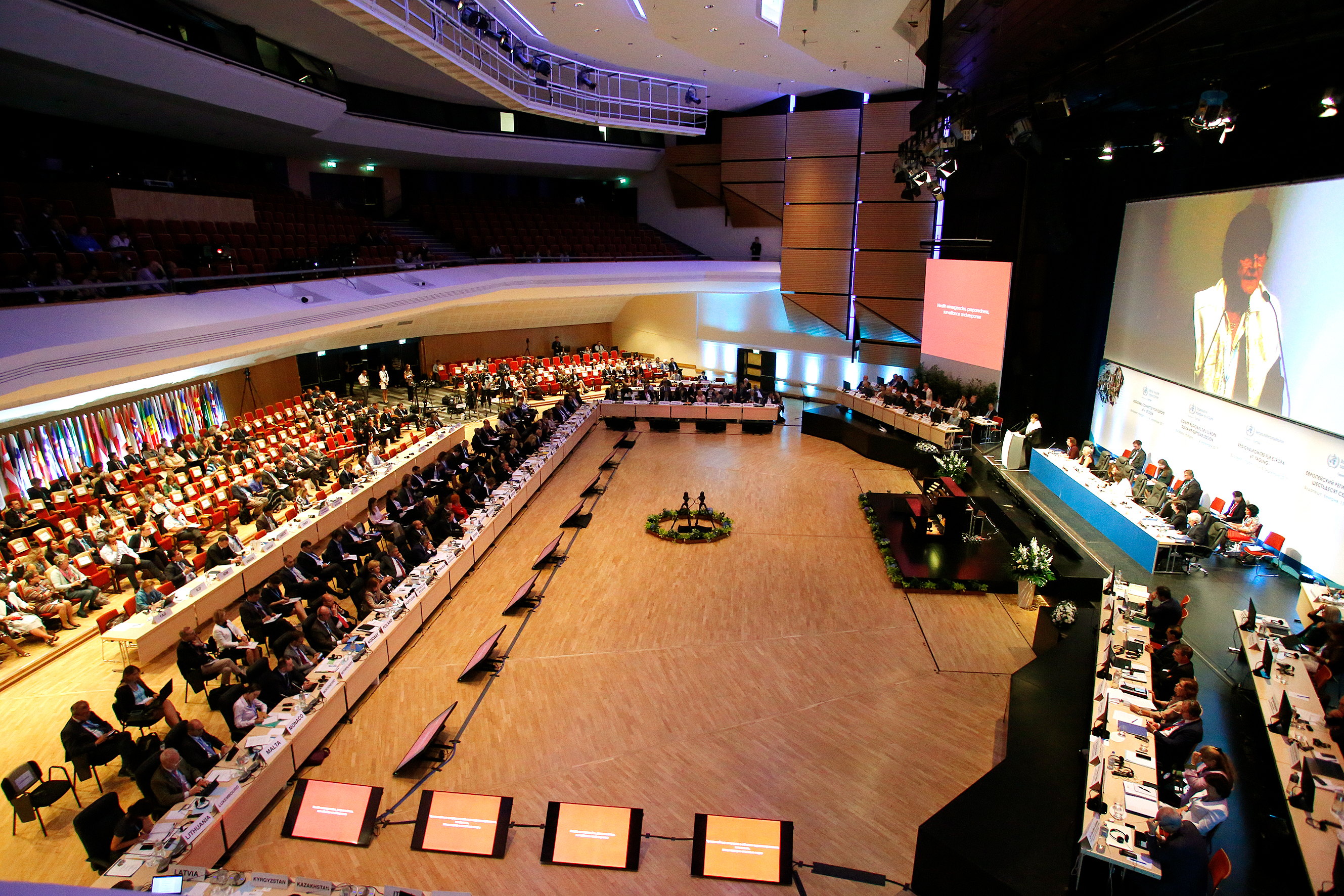HCWH Europe at WHO RC67
Last week, the 67th session of the WHO Regional Committee for Europe (RC67) took place in Budapest, Hungary. HCWH Europe has collaborated with WHO on both a global and regional level for many years, and was invited to participate in the session to share its knowledge and experience working with the European healthcare sector to reduce its environmental footprint.

Photo: WHO/Franz Henriksen
The WHO Regional Committee for Europe is WHO’s decision-making body in the European Region; health ministers and high-level representatives from the 53 WHO European Region Member States as well as partner organisations and civil society took part in RC67 from 11th –14th September 2017.
Some of the technical issues included on the four-day agenda were:
- Opportunities and challenges for 21st-century public health in implementing the Sustainable Development Goals and the Health 2020 policy framework
- Improving environment and health in the context of Health 2020 and the 2030 Agenda for Sustainable Development, with a focus on outcomes of the 6th Ministerial Conference on Environment and Health
- Working towards a sustainable health workforce in the WHO European Region through a framework for action
- Strengthening Member State collaboration on improving access to medicines in the WHO European Region
- Building regional partnerships for health
At the event, HCWH Europe worked independently and with other NGOs in attendance on a number of statements reflecting HCWH Europe’s position about key technical issues, such as climate change, environmental sustainability of health systems, and education of health professionals.
On Tuesday 12th September, HCWH Europe made a statement regarding the Roadmap to implement the 2030 Agenda for Sustainable Development, asserting its support of the WHO Roadmap addressing climate change as a public health issue. HCWH Europe also affirmed its commitment to work with all relevant stakeholders, (including national ministries, regions, and local authorities) to build low-carbon and resilient hospitals and health systems across Europe.
Later that day, HCWH Europe released a joint statement with Wonca (World Family Doctors) Europe, COTEC (The Council of Occupational Therapists for European Countries), Medicus Mundi, and WFOT (the World Federation of Occupational Therapists) on the agenda item concerning environment and health in the context of Health 2020 and the 2030 Agenda for Sustainable Development. This statement concerned planetary health and primary healthcare, and highlighted the Ostrava Declaration’s call for “Building environmental sustainability of health systems, and reducing their environmental impacts”. HCWH Europe highlighted that health systems can achieve a triple win in this regard: protecting the health of staff and patients; protecting the environment, and saving financial resources.
On September 13th, HCWH Europe delivered another statement, this time regarding the sustainable health workforce in the WHO European region. The statement was submitted in association with WFME (the World Federation for Medical Education) IFMSA (the International Federation of Medical Student’s Associations), and IPSF the International Pharmaceutical Student’s Federation) and called for recognition of the importance of primary health care in educating and caring for the population, as well as the duty of healthcare professionals to take action to minimise environmental risk factors on health and the healthcare sector itself. This statement also affirmed the importance of community based learning, by addressing these topics in healthcare curricula and throughout continuous professional development, as well as increasing the resilience of hospitals and health systems to the effects of climate change.
HCWH Europe looks forward to continued collaboration with WHO and other stakeholders to advance the voice of healthcare professionals to the European policy debate about key environmental issues and promote healthcare for an ecologically sustainable, equitable, and healthy world.
Preview image: WHO/Franz Henriksen
